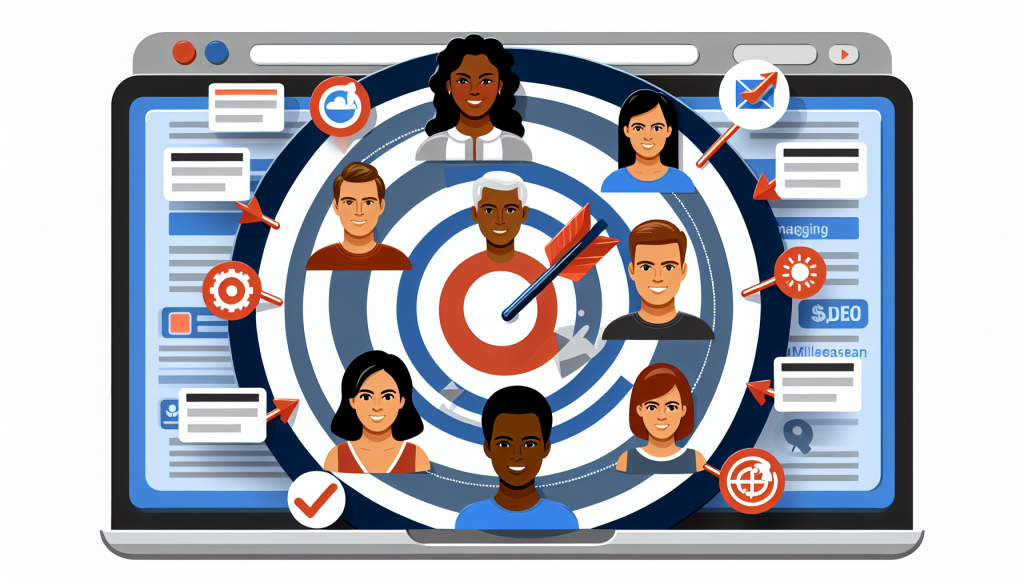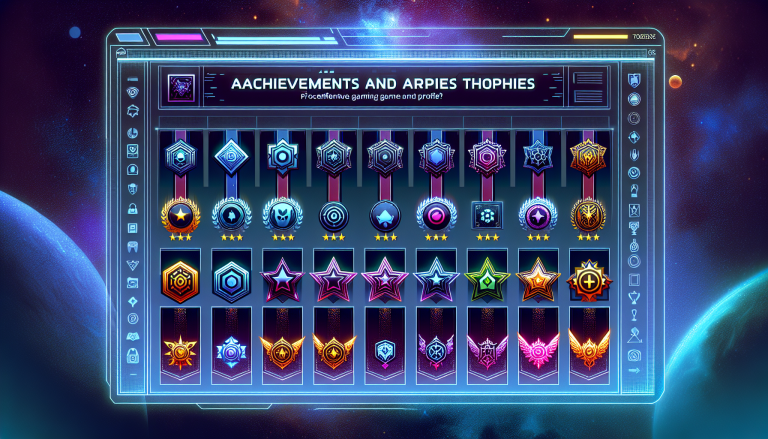Analyzing Moral Decisions in Video Game Narratives
Ever wondered how much of an impact your choices in a video game could have on the overall narrative? Well, you’re about to find out! In today’s gaming world, moral decisions are becoming increasingly more central to the gameplay experience.
Many popular games, like Mass Effect, The Witcher, or Fallout, demand their players to make ethically challenging decisions that shape the story’s course. These decisions are not just about ‘good’ or ‘bad’; they often involve complex moral dilemmas that require careful thought and consideration.
The Purpose of Moral Decisions in Games
So, why do game designers decide to incorporate such moral decisions into their narratives? It’s simple! They yearn to create an immersive, engaging, and emotionally challenging experience for players. Moral choices make the game world feel more real and consequential, forcing players to contemplate their actions in a different light.
How Moral Choices Define Characters and Influence Narrative
- Character Development: The avatar’s moral choices often reflect their personality traits, values, and overall character development. By making these decisions, players are often indirectly shaping their character’s personality and journey.
- Plot Progression: Moral decisions can sometimes dictate the game’s narrative arc. Depending on the player’s choices, the storyline can take different turns, leading to various endings.
Now, let’s be clear – we’re not saying that every decision you make in a game is a life-altering, profound choice. But when it comes to those big, moral dilemmas, they can indeed shape the course of your gaming journey.
Player Autonomy and Ethical Decision Making
One unique aspect of video games compared to other narrative media is the level of interactivity and autonomy they offer. Players don’t just passively consume the story; they actively participate and even shape it.
This autonomy allows players to exercise their ethical decision-making skills in a relatively safe and consequence-free environment. Each decision made can teach players something about themselves, their values, and how they might react in similar real-life situations.
So the next time you’re faced with a tough choice in a game, remember – it’s not just about winning or losing, it’s about understanding your ethical compass, and how these decisions can shape your character and overall gaming experience.
The Influence of Player’s Ethical Choices on Gaming Experience
When you think of video games, what comes to mind? For most, it’s an immersive world of adventure and excitement, where you can play as a hero, explore mystical lands, or just have fun. But have you ever paused to consider the ethical choices you make while playing? It turns out, these decisions can greatly influence your gaming experience, and we’re not just talking about different endings.
Games like Mass Effect or The Witcher series are popular examples where players have to make ethical choices, and these decisions shape the flow of the story.
Choose Your Own Adventure
The thrill of video games often lies in their interactivity. You’re not just watching a story unfold; you’re actively participating in it. And when games present you with ethical dilemmas, that participation becomes even more profound. These choices can range from small decisions, like whether to help a non-playable character (NPC), to larger moral quandaries that can determine the fate of entire in-game societies.
- Character Development: Your ethical choices can influence your character’s development. Choosing to be kind or cruel can affect your character’s abilities, reputation, and relationships with other characters. This, in turn, can open or close certain paths in the game, offering a unique gaming experience each time you play.
- Plot Twist: In some games, ethical choices can lead to entirely different plot outcomes. This adds a level of unpredictability and excitement, as players anticipate the consequences of their actions.
Emotional Engagement
Video games, especially narrative-driven ones, are designed to evoke emotions. And nothing tugs at heartstrings quite like a tough ethical decision. In fact, many players report feeling genuine guilt or pride based on their in-game actions. These emotions can significantly enhance the depth of the gaming experience, making players more invested in the story and characters.
Kicking Up the Difficulty
Adding in ethical choices doesn’t just make the game more immersive; it can also make it more challenging. Suddenly, you’re not just battling enemies or solving puzzles—you’re wrestling with moral dilemmas. Making the “right” choice isn’t always clear-cut, and this ambiguity can make the game more complex and engaging.
At the end of the day, the impact of ethical choices on your gaming experience depends largely on how you, as a player, respond to these dilemmas. Some players might appreciate the added depth and emotional immersion, while others might find the moral ambiguity frustrating. But one thing is clear: ethical choices in video games are here to stay, offering new and exciting ways to engage with our favorite virtual worlds.
Ethical Dilemmas and Moral Challenges in Video Games: Case Studies
Let’s dive into the intriguing world of video game narratives, where our moral compass is often put to the test. Here, we’ll explore the ethical conundrums in popular video games and their impact on player engagement. So, buckle up as we embark on this virtual journey of exploration!
Case Study #1: The Witcher 3: Wild Hunt
The Witcher 3 compellingly models how one’s choices can have significant and unforeseen consequences. This game doesn’t offer moral dilemmas in black and white; instead, it presents them in shades of grey. One notable example is the ‘Bloody Baron’ quest, where players must decide the fate of a spirit tormenting a local village. The choice isn’t easy, and no matter what you choose, the consequences are far from ideal. This quest effectively reflects real-world ethical complexities, where good intentions may lead to regrettable outcomes.
Case Study #2: Mass Effect
Throughout the Mass Effect series, players often encounter moral decisions that influence the storyline, character relationships, and even the endgame. The game employs a ‘Paragon-Renegade’ system, encouraging players to make compassionate or ruthless choices, respectively. For example, during the ‘Virmire’ mission, players face a heartbreaking decision to sacrifice one of their beloved crew members, testing their moral decision-making skills in an emotionally charged setting.
Case Study #3: Telltale’s The Walking Dead
In this game, players confront a dystopian world where survival often means making morally challenging decisions. One instance is when players are forced to choose between saving a child stuck in a bear trap, risking attracting more zombies, or leaving him to die and ensuring the group’s safety. Such decisions can be emotionally draining, making players question their own moral principles.
Case Study #4: Detroit: Become Human
Set in a futuristic world, Detroit: Become Human is a narrative-driven game that explores the theme of android sentience. The game is filled with moral dilemmas. For example, one scenario forces players to decide whether their android character should obey their owner’s orders or protect a child from abuse. These gut-wrenching choices, underscored by themes of subjugation and freedom, challenge players to question the very nature of morality and humanity.
The ethical dilemmas in these games aren’t meant to simply entertain; they also provide an engaging platform to reflect on our own moral values and how we apply them in challenging situations. So, the next time you pick up the controller, prepare for not just an entertaining gaming session, but also an exploration into the depths of your own morality.
The Connection Between Video Game Morality and Real-Life Ethics
Have you ever pondered, “Does the ethical decision-making in a video game bear any connection to real-life ethics?” If so, you’re not alone! It’s a fascinating topic that sparks diverse opinions.
We’ve all been there: sitting on our couch, controller in hand, a bead of sweat trickling down our forehead as we make a crucial moral decision in a game. Should we spare the enemy or smite them? Should we steal the treasure or leave it be? Our choices often reflect our personal values and moral compass, and these decisions can sometimes be more complex than we realize.
Video Games: A Morality Playground
Video games provide us with a unique platform to explore moral and ethical dilemmas in a safe and controlled environment. They present us with scenarios that we might never encounter in our daily lives, challenging our conventional understanding of right and wrong.
For instance, games like Mass Effect, The Witcher, and Fallout are known for their intricate moral dilemmas, encouraging players to carefully consider their actions and their potential consequences.
Translating In-Game Morality to Real Life
But can these virtual ethical choices really translate into real-world morality?
Yes, they can. According to research, the moral decisions we make in video games can impact our real-life ethical choices. An experiment conducted by psychology researchers at the University of Buffalo found that players who engaged in prosocial behavior in games were more likely to exhibit similar behavior outside the gaming world.
- Empathy: When we’re forced to make difficult choices that affect our virtual companions, we exercise our empathy muscles. This can potentially translate into increased empathy in real-life situations.
- Consequences: Many games incorporate a system of rewards and punishments based on your ethical choices. This can lead to an understanding of the real-life principle that every action has a consequence.
- Problem-solving: Ethical dilemmas in video games often require careful thought and problem-solving. This can enhance our ability to navigate similar moral quandaries in reality.
However, it’s important to remember that these effects are largely dependent on the individual player, their experiences, and their personal values.
A Note of Caution
While video games can be a useful tool for ethical exploration, it’s important to exercise caution. The ethical landscapes in games are created by developers and may present a biased or overly simplistic view of morality. So, while games can provide insight into ethical dilemmas, they should not be our sole source for ethical learning.
Remember, the primary goal of gaming should always be to have fun. Ethical questions are a bonus that can lead to great discussions and personal insights. So next time you’re faced with a tough choice in your favorite game, take a moment to consider what it says about your values – and enjoy the process of thinking it through!












